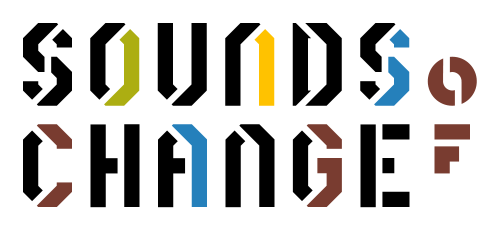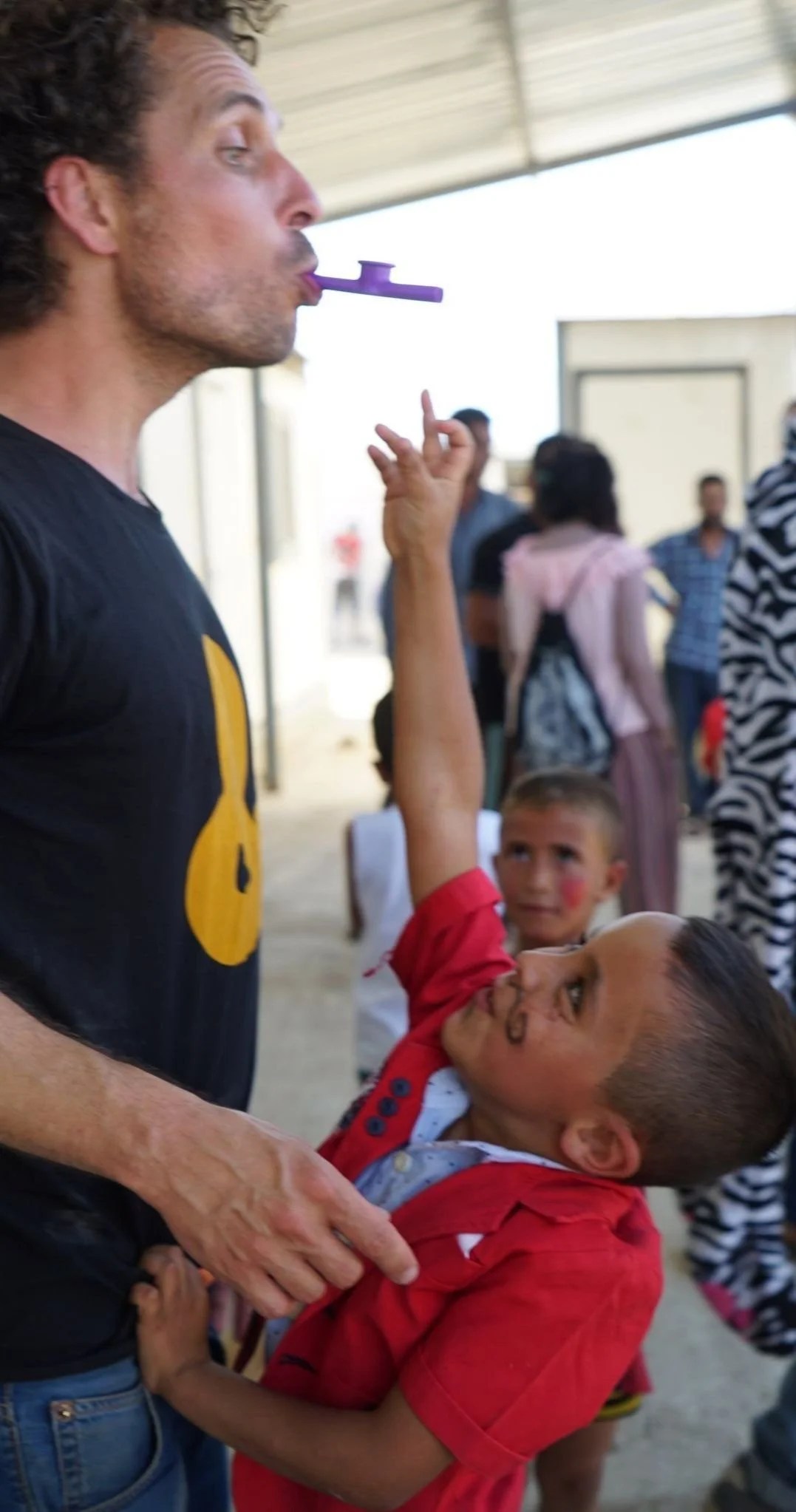Interview with SOC director Lucas Dols
Safe Spaces in Unsafe Places: Talking with Lucas Dols of Sounds of Change
Patrick Scafidi, executive editor of online platform The Ensemble, conducted an interview with Sounds of Change founder and director Lucas Dols. We are proud to feature an excerpt of that conversation in this newsletter.
The Ensemble’s mission is to connect and inform all people who are committed to ensemble music education for youth empowerment and social change.
Introduction from the Ensemble
When we last spoke to Sounds of Change Founder and Director Lucas Dols, in 2022, he was hopeful about an upcoming year of growth for the organization. Training educators, youth support organizations, and mental health professionals to use music in their work with traumatized or marginalized young people, Sounds of Change relies on those who are already on the ground to carry their lessons into affected communities. The outcome is mutually beneficial—trauma-sensitive music initiatives are run by those who live in and know the communities, and Sounds of Change ensures financial and ecological sustainability, without using resources to travel or disrupting a region’s delicate social balance.
Seventeen months later, the world is no less difficult or overwhelming for young people looking to find their way. With a focus on those who are most affected by violence and displacement abroad, we talked with Lucas about the work Sounds of Change is doing to help.
If you missed our first conversation with Lucas, from September 2022, check it out here.
The Ensemble: Where is Sounds of Change concentrating efforts now?
Lucas Dols: We’re working on many projects this year. Of course, we’re continuing our work online with mental health specialists in Ukraine, where we’ve been facilitating webinars on trauma-sensitive support and the use of music and art with trauma for almost two years.
Last December, we reconnected with the Hope Flowers School in Bethlehem (West Bank, Palestine). They asked us for online training and support for their teacher and therapist team. We’re now leading a series of webinars for the Hope Flowers team—a program quite similar to what we’ve been doing online in Ukraine.
How did that partnership come to be? Can you tell us more about how Sounds of Change is supporting Hope Flowers?
The Hope Flowers School is a pioneer in constructive peace education. They’re so unique in what they do. The school provides special needs education to children ages 5 –14 who have been traumatized by conflict and are exposed to poverty, malnutrition, and lack of perspective. They have a beautiful mission: “educating for the well-being of humanity.” We were working with them as far back as 2017–19 and have stayed in contact ever since. So, we responded fast when they requested support.
Along with our partner organizations, Trauma International and Safe & Sound, we are now running an online training program for the teacher and therapist team at the Hope Flowers School. The program focuses on basic knowledge about trauma and trauma-sensitive support tools designed to help the school’s children. The program also includes trauma-sensitive music and art techniques and interventions.
[Learn more about the Hope Flowers School’s collaboration with SoC here.]
What have you seen in the young people over there? Many distant observers struggle to understand the experiences these children are having—please share what you’re comfortable sharing about how those experiences show up in the classroom.
In the first image of this 2018 post about my trip to the West Bank, you can see how close an Israeli settlement is to the school. A year later, when I went back, the settlement was at least one block closer. This is a visible example of the pressure that people in the West Bank feel, including the Hope Flowers kids.
The teachers, therapists, and children there are now under constant pressure. Sometimes the Israeli army comes very close to the school, which scares the children a lot. Most children are quite vulnerable due to their special needs, to say nothing of their physical safety. Not all children might understand what is going on.
How are those feelings addressed by the Hope Flowers team?
During the online sessions, we see a lot of emotions in the teachers and therapists—stress, fear, sadness, anger. But they are also so powerful in this moment. When something challenging happens to or around the school’s community, the team feels even more energy to continue their important work. And when we “check out” of sessions, we hear words like “comfort, relief, hope, connection, optimism, happiness.”
We try to address all these emotions and give them tools to release and work through them—the same tools they can use in their work with the children.
You can read the full article here on the Ensemble's website.






